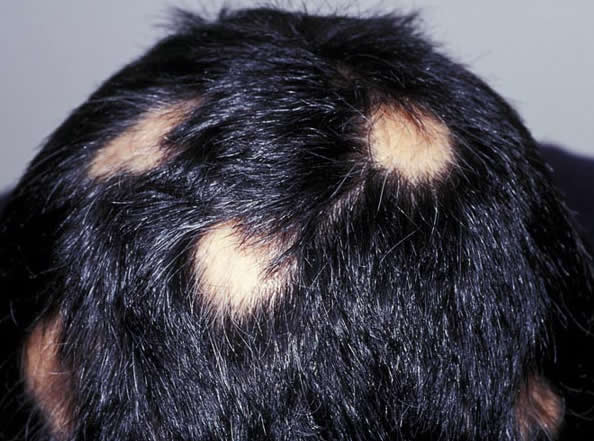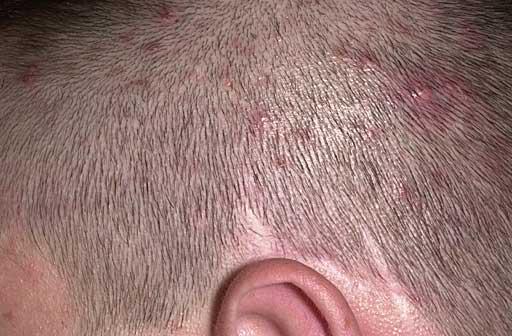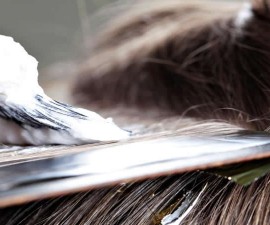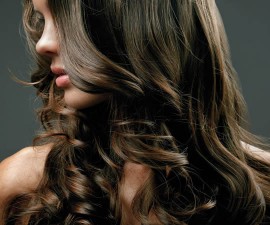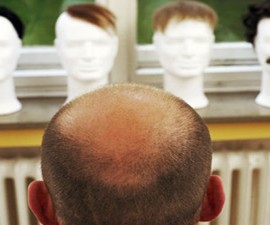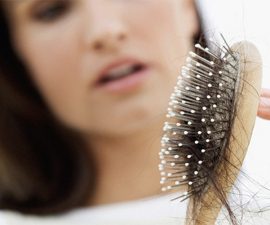Thinning hair can be attributed by a number of different factors and causes. It can be very bothersome if it comes together with itchy scalp. And if you scratch it a lot, this can make the problem get worse. Depending on the cause of the problem, many times thinning of hair with itchy scalp is usually temporary.
And the following are some possible causes of the problem:
Dandruff
It is actually a skin condition, and it is quite common. But it can affect the skin of your head (scalp), causing grey /white flakes of dead skin in the hair or scalp.
Dandruff and hair loss (including for thinning of hair) don’t share the same cause. Again, dandruff is a skin problem. And thinning hair is a kind of hair loss.
Interestingly, you are also likely to lose some of dandruff as you lose your hair.
Furthermore, excess dandruff can lead to dry, itchy scalp. And if you often scratch it, this may cause more hair follicles to fall out, causing thinning hair.
Dandruff can vary from person to person (from mild to severe). The good news, it is harmless and not contagious. It is not associated with serious health condition or poses a threat to your health. But it can be very bothersome and embarrassing.
The underlying cause of dandruff is not fully understood yet. But there are some theories that may help you to understand about it.
Normally, your body continuously sheds dead skin cells. These old cells are replaced by new skin cells in order to maintain the health of your skin. This natural mechanism runs gradually, mostly you don’t notice it!
But due to some reasons, this mechanism can speed up. This causes a rapid production of excess dead skin cells. As a result, you may have more dandruff.
Dandruff from seborrheic dermatitis
Seborrheic dermatitis is a kind of eczema that often occurs in the greasy /oily skin, including scalp. Hair loss and dandruff can be some of the common symptoms, especially if it affects hairy skin. Other symptoms include:
- The affected skin can be itchy.
- Lesion and redness on the affected skin.
- The problem can make the skin become greasier than before.
In severe cases, seborrheic dermatitis on the scalp may lead to serious patches and significant hair loss. But the complete remission of hair growth is probable, particularly if there is no scarring.
Dandruff from some hair loss treatments
Most of hair loss treatments are used topically. While this is good to treat the problem locally, but it may directly affect the scalp area where the treatment is topically applied. And one of possible side effects is more dandruff.
For instance, the use of minoxidil (a common topical solution for male pattern baldness) may cause dandruff-like flaking as a side effect. The underlying cause may be alcohol of the treatment that can dry out the scalp.
If you do find more dandruff from minoxidil, switching to another treatment may be your option. Another idea, you can take dandruff shampoo. Or if the problem is really bad, ask your dermatologist for a prescription steroid cream.
Propecia (finasteride) is another hair loss treatment, doesn’t lead to flaking. Even many times it works better than minoxidil.
Other factors and causes
The following factors are not directly responsible, but sometimes these may make your dandruff get worse:
- Sometimes malassezia (fungus) that naturally lives on the scalp can grow out of control, causing rapidly new skin production and more dead skin cells.
- Both poor washing and too much shampooing your hair! While poor washing can cause more accumulation of dirt or other bad things in the scalp, too much shampooing can cause irritation.
- Excessive use of hair products such as hair gel, hairspray, or hair mousse.
- Psoriasis may also contribute to cause more dandruff, since it can make the scalp become dry and flaky.
- Environmental factors, such as extreme temperatures (both too dry and too cold climates).
- Lifestyle factors, such as stress and obesity.
Without known reason, weakened immune system and neurological conditions may also have an effect. In fact, dandruff is also quite common in people with HIV /AIDS, Parkinson’s disease, and stroke.
Dandruff treatments
For instances, if your dandruff is associated with seborrheic dermatitis, a prescription lotion /cream containing ketoconazole is usually recommended. And if your dandruff is a side effect of particular medication you’re taking, consider switching!
In general, the following tips can help:
Lifestyle measures
- Wash your hair and scalp appropriately, NOT too much and NOT too rare! This can vary from person to person.
- Use a mild shampoo to help get rid of dandruff, ‘tea tree oil’ shampoo may work best for you!
- Apply the shampoo gently, avoid scratching your scalp! Keep nails trimmed short!
- The use of hair products such as gel and hairspray should be avoided, at least until your dandruff clears!
- Stress can worsen everything. Many times, it is inevitable. But you can control it!
Keep active and spend more time outside! It’s thought that getting adequate exposure to the sun (spending time outdoors) can help ease the problem. But don’t forget to wear sunscreen for your skin protection!
Take anti-dandruff shampoo if necessary!
If your dandruff is getting worse, the use of anti-dandruff shampoo can be worth a try! You can purchase it in your local pharmacist or supermarket.
There are numerous different anti-dandruff shampoos to choose from. They are usually composed by the following essential ingredients:
- Salicylic acid, this essential acid can help soften and clear dead skin cells on the scalp. But it may make your scalp dry out. Therefore you may need to use it with a conditioner to minimize the side effect.
- Ketoconazole, which is usually required to help fight against fungal infection.
- Zinc pyrithione, to help fight against malassezia (a fungi that can trigger excess dandruff on the scalp, as noted before).
- Coal tar, to help slow and reduce the production of dead skin cells.
- Selenium sulfide, to reduce excess production of skin cells. It can help kill fungi, too.
In addition, there is also opinion that eating certain foods contribute to cause more dandruff. However this issue is not clear yet. But if you do suffer from a food allergy, keep it off!
Other possible causes of thinning hair and itchy scalp
Excess dandruff is not the only one. Thinning hair and itchy scalp may also be attributed by other underlying causes.
These other causes may include:

